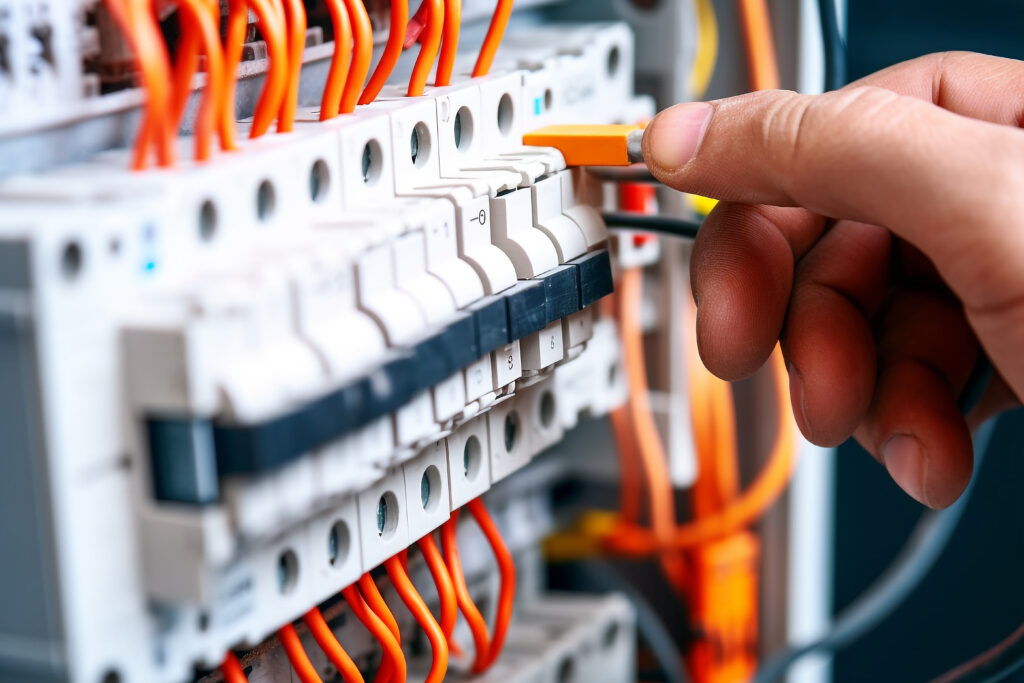Air conditioning units are essential appliances for maintaining comfortable indoor temperatures, especially during the sweltering summer months. However, like any electrical device, AC units have the potential to catch fire under certain conditions. Understanding the causes and taking preventive measures can significantly reduce the risk of AC-related fires. This article explores the causes of AC fires, their frequency, and how to prevent them.
What Would Cause an AC Unit to Catch Fire?

Electrical Issues
Electrical malfunctions are among the most common causes of AC unit fires. These can include:
- Faulty Wiring: Poor installation or degradation over time can lead to exposed wires, short circuits, and increased fire risk. Loose connections can cause arcing, which generates heat and potentially ignites nearby materials .
- Overloading Circuits: Connecting too many appliances to a single circuit can overload it, causing wires to overheat and increasing the risk of fire. Ensure that your AC unit is connected to a dedicated circuit with the appropriate amperage .
Overheating
Overheating is another major cause of AC unit fires. This can occur due to:
- Blocked Airflow: If the air filters or coils are dirty, the AC unit must work harder to cool the air, leading to overheating. Regular maintenance is crucial to ensure that air can flow freely through the system .
- Refrigerant Leaks: Low refrigerant levels can cause the compressor to overheat, increasing the risk of a fire. Regularly check for leaks and ensure that refrigerant levels are adequate .
Mechanical Failures
Mechanical failures within the AC unit can also lead to fires:
- Fan Motor Malfunctions: A malfunctioning fan motor can cause overheating, particularly if the motor is old or poorly maintained .
- Compressor Issues: The compressor is the heart of the AC system, and if it fails or overheats, it can lead to a fire. Regular inspections can help identify potential issues before they escalate .
How Common Is an AC Fire?
AC unit fires are relatively uncommon compared to other household fires, but they do occur. According to statistics, air conditioning, fans, or related equipment are responsible for approximately 2,300 home fires in the United States each year, leading to around 20 deaths . While the risk is low, the potential consequences are severe, making awareness and prevention critical.
Can My AC Catch Fire in Summer?
The risk of AC unit fires increases during the summer months due to several factors:
- Higher Usage: AC units run more frequently and for longer periods during the summer, increasing wear and tear on components and the risk of overheating .
- Extreme Temperatures: High ambient temperatures can exacerbate overheating issues, particularly if the unit is not well-maintained or is improperly installed .
- Electrical Load: The increased demand on the electrical grid during summer can lead to power surges, which may damage AC units and increase the risk of fire .
Can an AC Motor Catch Fire?
The motor in an AC unit is a critical component that can catch fire if it overheats. Common causes of motor overheating include:
- Lack of Maintenance: Dust and debris can accumulate around the motor, leading to poor ventilation and increased heat buildup .
- Single-Phasing: In three-phase motors, the loss of one phase (single-phasing) can cause the motor to draw excess current and overheat .
- Worn Bearings: Worn or damaged bearings increase friction, causing the motor to work harder and potentially overheat .
Preventive Measures
Regular maintenance, including cleaning and inspecting the motor, can help prevent overheating. Ensure that the motor is properly lubricated and that electrical connections are secure .
How to Prevent My AC Unit from Catching Fire?

One of the most effective ways to prevent AC unit fires is through regular maintenance:
- Replace Air Filters: Dirty air filters restrict airflow and cause the unit to overheat. Replace them every 1-3 months, depending on usage .
- Clean Coils: Clean the evaporator and condenser coils regularly to ensure efficient heat transfer and prevent overheating .
- Check Refrigerant Levels: Ensure that refrigerant levels are adequate and check for leaks. Low refrigerant levels can cause the compressor to overheat .
Electrical Safety
Take precautions to ensure electrical safety:
- Hire a Qualified Technician: Ensure that your AC unit is installed and serviced by a qualified technician to prevent wiring issues and other electrical problems .
- Use a Dedicated Circuit: Connect your AC unit to a dedicated circuit with the appropriate amperage to prevent overloading and overheating .
Monitor and Address Warning Signs
Pay attention to warning signs that may indicate a potential fire risk:
- Unusual Noises: Grinding, squealing, or banging noises may indicate mechanical issues that need immediate attention .
- Burning Smells: A burning smell coming from the unit could indicate overheating or electrical issues. Turn off the unit and call a technician immediately .
- Frequent Tripping of Circuit Breakers: If your AC unit frequently trips circuit breakers, it may indicate an electrical overload or short circuit that needs to be addressed .
Proper Installation and Ventilation
Ensure that your AC unit is properly installed and has adequate ventilation:
- Avoid Obstructions: Keep the area around the unit clear of debris, vegetation, and other obstructions to allow for proper airflow .
- Ensure Adequate Ventilation: Install the unit in a location with sufficient ventilation to prevent overheating, especially during the summer months .
Conclusion
While the risk of an AC unit causing a fire is relatively low, it is not negligible. Understanding the potential causes of AC fires and taking preventive measures can significantly reduce the risk. Regular maintenance, electrical safety precautions, and proper installation are key to ensuring the safe operation of your AC unit. By staying vigilant and addressing warning signs promptly, homeowners can enjoy the benefits of air conditioning without compromising safety .


